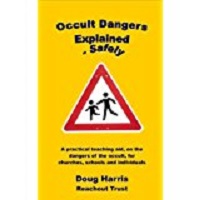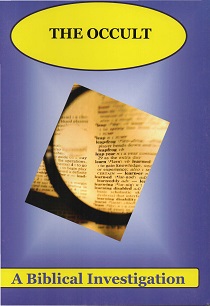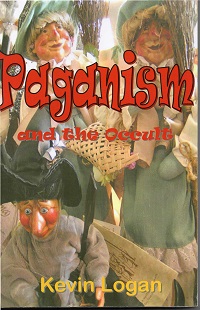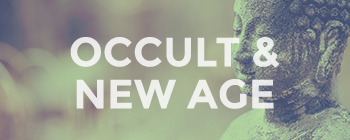Should we have a Christian Halloween? Is Halloween no more than a touchstone of our culture, like beating the bounds, May Day, Morris Dancing. Bonfire Night, All-Saints Day, Advent, ghost stories told when nights draw in, the tales of Dickens or MR James? Christians are divided on the question, some insisting it is ‘harmless fun,’ others warning of the pagan and occult origins of Halloween. It is a question as old as the Bible.
It has been argued, for instance, that Christians deprive themselves of a good deal of harmless fun by being po-faced about Halloween. What’s wrong with a Christian Halloween? It’s an opportunity to go back to our childhood, thrill at stories of spectres, and monsters under the bed. Excitement, adventure, and fantasy await those prepared to give themselves over to the fun and games; a colourful and exciting time.
Of course, a group of children dressed in scary costumes going trick-or-treating is hardly a threat to the church, or to the peace of the community. They can hardly be said to be celebrating all things evil, dark, and occultic; they are simply having fun.
Halloween Origins
The celebration of Halloween on 31 October each year goes back to the ancient Celtic festival of Samhain (pronounced Sawin). Indeed this is still the pagan name for the festival that falls around the 31st October, depending on the phases of the moon. There is an interesting article on the origins of Halloween in the Oct. 6th National Geographic.
There are many different suggestions as to what actually happened on this night in ancient times. It appears that many people thought that the barrier between the human world and the supernatural world was broken down and could more easily be crossed.
“Central to the festival of Hallowe’en was the celebration of the dead. The Celtic New Year festival was known as the celebration of Samhain… The eve of November 1st, the day on which the old year died, was a very appropriate time to honour death.” – Hallowe’en Treat or Trick, David Porter, 1993, p.24.
This evening has always been associated with the ‘dark side,’ with evil supernatural realms but we should not imaging from this that everyone sacrificed babies and the Devil roamed freely and did whatever he wanted.
In Celtic and Anglo-Saxon times, this was also the eve of the New Year, and bonfires were lit to ward off evil spirits. At other times it was felt that this was a good evening to invoke the Devil’s help concerning marriages, health, etc., by means of divination.
“The ancient Celtic (Irish, Scottish, Welsh) festival called Samhain is considered by many to be a predecessor of our contemporary Halloween. Samhain was the New Year’s Day of the Celts, celebrated on 1 November. It was also a day of the dead, a time when it was believed that the souls of those who had died during the year were allowed access to the land of the dead. It was related to the season: by Samhain, the crops should be harvested and animals brought in from the distant fields.
Many traditional beliefs and customs associated with Samhain, most notable that night was the time of the wandering dead, the practice of leaving offerings of food and drink to masked and costumed revelers, and the lighting of bonfires, continued to be practiced on 31 October, known as the Eve of All Saints, the Eve of All Hallows, or Hallow Even. It is the glossing of the name Hallow Even that has given us the name Hallowe’en
The spirits of Samhain, once thought to be wild and powerful, were now said to be something worse: evil. The church maintained that the gods and goddesses and other spiritual beings of traditional religions were diabolical deceptions, that the spiritual forces that people had experienced were real, but they were manifestations of the Devil, the Prince of Liars, who misled people toward the worship of false idols.
Thus, the customs associated with Halloween included representations of ghosts and human skeletons -symbols of the dead- and of the devil and other malevolent, evil creatures, such as witches were said to be. – Halloween and other Festivals of Death and Life, Jack Santino, University of Tennessee Press, Knoxville, 1994.” – Quoted from the Darkside Parlour Web Site.
Mrs. Gloria Phillips of Mobile, Alabama gives further background to this festival in an article entitled “Halloween What It Is From A Christian Perspective.”
“The custom of Halloween is traced to the Druid festival of the dead. At that time the Roman Pantheon was built by Emperor Hadrian in 100 A.D. as a temple to the goddess Cybele and other Roman deities. It became the principle place of worship. Roman pagans prayed for the dead. Rome was captured and the Pantheon fell into disrepair. Emperor Phocas captured Rome and gave the Pantheon to Pope Boniface IV in 609. He reconsecrated it to the Virgin Mary and resumed using the temple to pray for the dead, only now it was “Christianized”, as men added the unscriptural teaching of purgatory. In 834 A.D. Gregory IV extended the feast for all the church and it became known as All Saint’s Day, still remembering the dead.”
David Porter also goes on in his book to show that the Druids too regarded Halloween as a sacred time. He quotes on p.26 of his book from The Elements of the Druid Tradition by Philip Carr-Gomm, p.70.
“The Druid rites… were concerned with making contact with the spirits of the departed, who were seen as sources of guidance and inspiration rather than as sources of dread… The dead are honoured and feasted, not as the dead, but as living spirits of loved ones and of guardians who hold the root-wisdom of the tribe.”
Many felt that this was also a time when the souls of the dead revisited their homes, therefore the preoccupation with ghosts, demons and the like. This led to many feeling they needed to placate the supernatural powers, especially those controlling nature. Sacrifices of animals, vegetables or maybe even humans were made to this end.
Halloween and The Church
The church wanted to divert the thinking and preoccupation away from these pagan ceremonies and so introduced special services for All Hallows Eve and 1 November, All Saints Day. This effort however has largely failed and to most Halloween evening is still very pagan.
“Hallowe’en today is part of a trilogy of celebrations: Hallowe’en, or All Hallow’s Eve (observed on 31 October), All Saints Day (celebrated on 1 November), and All Souls’ Day (celebrated on 2 November). Of these the second and third (sometimes referred to together as ‘Hallowtide’) are festivals created by the Christian church. Hallowe’en however, is a festival whose roots are deep in pre-Christian religion and which in modern times retains much of its pagan symbolism.” – Porter, pp.22/23.
We need to be aware that this evening is special to a great number who practice Witchcraft and Satanism. Many witches will give testimony to what happens at Halloween as being very special to them and indeed how much they enjoy it.
Development of Halloween
Halloween has developed over the years. In some countries it is used as an opportunity for profit, becomes a commercial enterprise, in other countries it ishardly celebrated at all. The fact of the matter is, that whatever the ‘outward’ signs are, the witches will be using Halloween as part of their celebrations, because of its pagan and occult roots.
As we point out in our various publications on the Occult, there is a vast difference between Wicca – ‘White’ Witchcraft – and Satanism. Consequently Halloween celebrations will mean different things to different covens, but the link with the occult will be very clear.
“Yet there are much stronger survivals in modern Hallowtide. Ancient rituals are being recited today much as they were a thousand years ago, and gods and spirits are being worshipped who were worshipped in the West before the birth of Christ. Some groups actively worship the devil; others (the majority, in fact) claim to repudiate satanism and to devote themselves to caring for the planet and for their fellow human beings. Some regard Christianity as a recent religion, of little enduring worth; some regard themselves as in amiable co-existence with Christianity; others hate Christianity and would destroy it if they could. For all these, Hallowe’en is a special occasion in a way that other traditional festivals are not.” –
Whatever the dangers and questions about Halloween it is proving more popular in the West than ever. This popularity is driven by commercial interests as profits made from costumes, make-up, sweets, special pots to collect them, toys, parties, alcohol, etc.
Trick or Treat
This common practice, associated with Halloween, was introduced by the Irish immigrants in America and at first was quite malicious. As it developed down the years it very often turned into harmless pranks. Much today is still harmless, but there is also an element of the destructive and malicious that has come back in.
Trick or Treat boils down to ‘blackmail to prevent vandalism’ and we would suggest is not healthy for Christian children to be involved in it. We should also, where possible, encourage our friends and neighbours not to allow their children to do it either. Not only do we have the preoccupation with the occult but also the danger of talking to and taking sweets from strangers. We should also consider how we might frighten some young or old people with gruesome costumes.
Your Children
We understand that it can sometimes be difficult for your children, with peer pressure and activities at school, etc. However, for the reasons stated above we would encourage you to dissuade them from taking part in specific Hallowe’en celebrations.
It might be helpful to your children, if you arrange a special treat as a family that evening, or discover a church near by where some of their friends will be attending a ‘Light Party’ or similar event that they could also go to.
If you have contacts at your local school, underline the fact that we seek to provide a safe environment for our kids at school and so it is not appropriate to teach our children that experimentation with the occult world is okay. At least ask them to get someone to warn of the dangers. Each year kids have warnings about fireworks, talking to strangers, playing in the road, etc., and so it will not be a problem to add a warning of the dangers of the supernatural realm.
Finally, it would be helpful if you looked further at the whole supernatural realm. Discover, for yourself, that just as there is an evil realm as described above there is also a ‘good’ realm. The more you have experienced the reality of this realm yourself the more you can help your children.
A Time Appointed
‘In his letter to Rome Paul makes clear:
‘[God’s] invisible attributes, namely, his eternal power and divine nature, have been clearly perceived, ever since the creation of the world, in the things that have been made. So they [people] are without excuse. For although they knew God, they did not honour him as God or give thanks to him, but they became futile in their thinking, and their foolish hearts darkened. Claiming to be wise, they became fools, and exchanged the glory of the immortal God for images resembling mortal man and birds and animals and creeping things.’ (Ro.1:19-23)
Think of that text the next time you pass a New Age shop window and see depicted there ravens, owls, wolves, angels, images of the dead, harbingers of death and darkness. This is not simply a bit of harmless fun. The Bible calls it foolishness, and for good reason.
Paul, in his Athens address, explains:
‘The times of ignorance God overlooked, but now he commands people everywhere to repent, because he has fixed a day on which he will judge the world in righteousness by a man whom he has appointed; and of this he has given assurance to all by raising him from the dead.’ (Acts 17:30,31)
In our shop you can find resources to help you think through the dangers of the occult:

Occult Dangers Explained is especially helpful for teachers and others working with children and young people.

The Occult, in our Biblical Investigation Series, Occult practices and beliefs, defining occult, explaining the dangers of involvement in occult practices, with comparisons to Evangelical Christianity and helpful guides to sharing Jesus.

Paganism and Occult looks at the influence of the occult in our world, examines its ultimately unsatisfying rewards, and how to help people escape occult influences.

